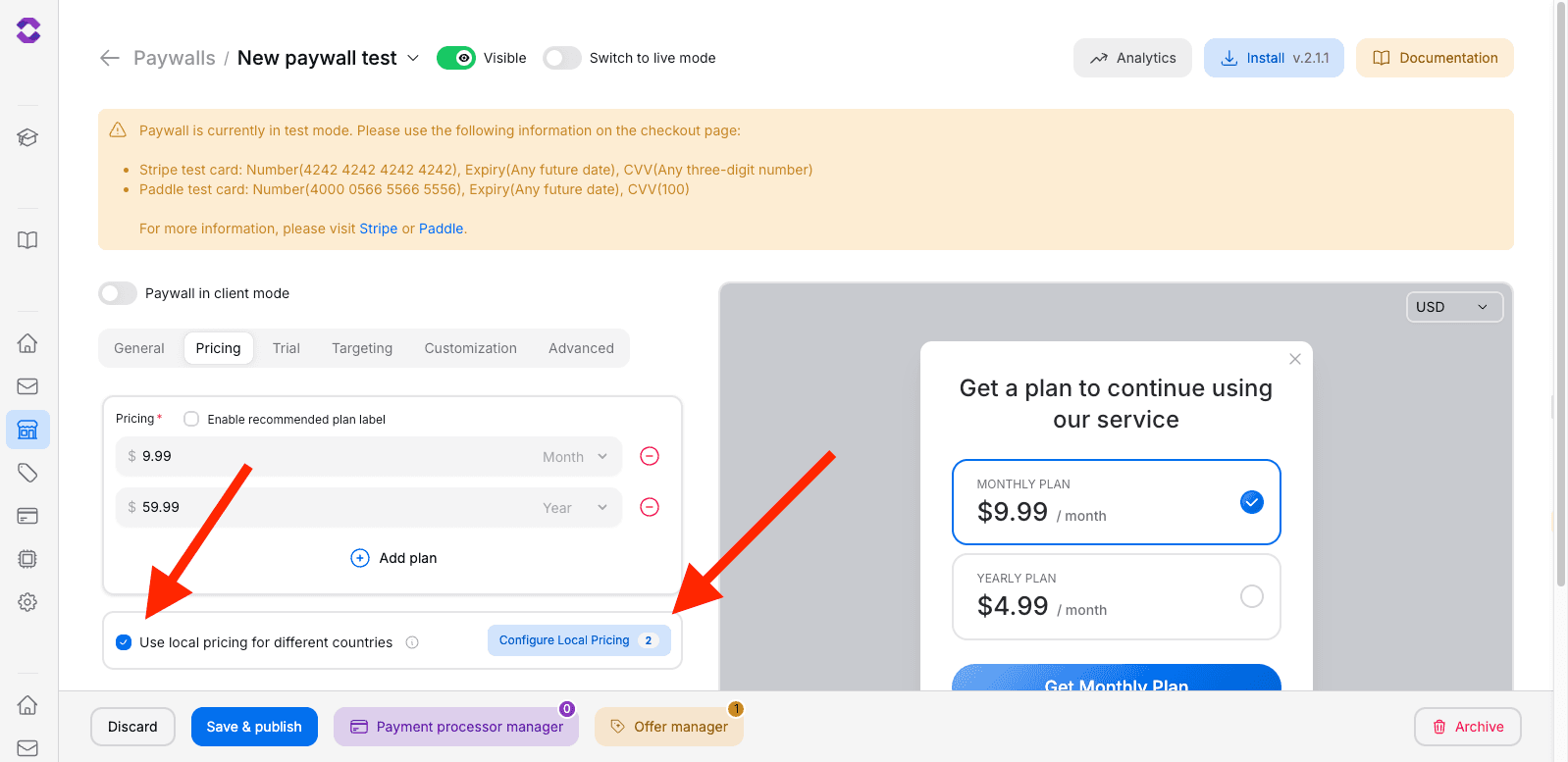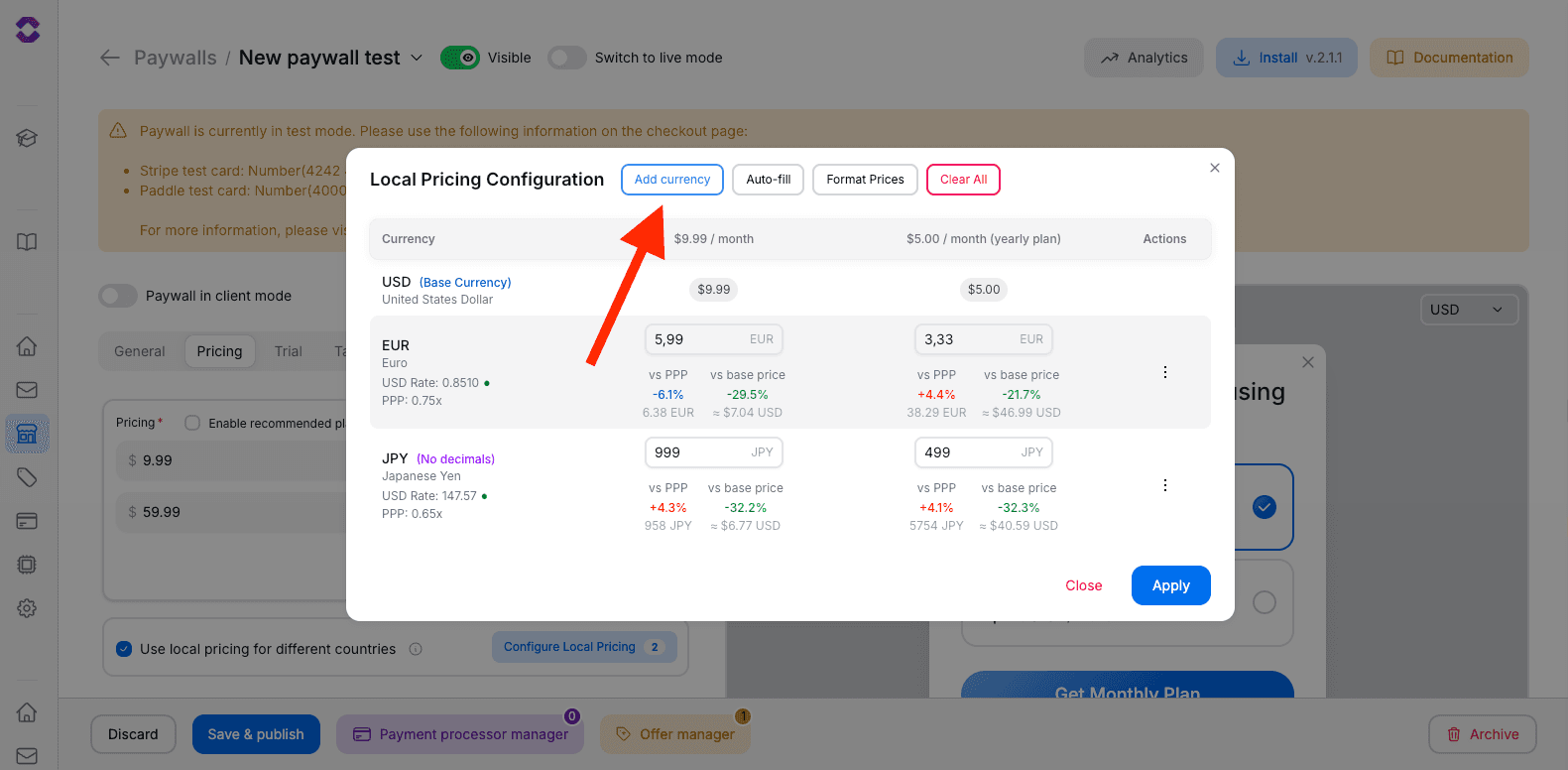Local Pricing
Local pricing allows you to set different prices for different countries and currencies, helping increase conversion rates by adapting prices to the purchasing power of various regions.
Local pricing is especially effective for global products, allowing you to optimize prices for the economic conditions of each country.
How It Works
The local pricing system automatically detects the user’s country and shows the corresponding prices in their local currency. If no local price is configured for the user’s country, the base price will be used.
Key Features
- Automatic country detection based on IP address
- Support for 50+ currencies
- Smart rounding depending on the currency type
- Automatic calculation based on exchange rates and the Big Mac Index
- Flexible customization for each currency separately
Setting Up Local Pricing
Step 1: Enable the Feature
- Go to your paywall settings
- In the “Pricing” section, find the option “Use local pricing for different countries”
- Check the box to enable
- Then Click the “Configure Local Pricing” button

Step 2: Add Currencies
- In the editor, click “Add Currency”
- Select a currency from the supported list

Step 3: Set Prices
For each added currency, you can:
- Use automatic calculation – the system will suggest prices based on exchange rates and economic indicators
- Set prices manually – enter your desired prices for each plan
- Copy prices from another currency and adjust them
Automatic Price Calculation
The system suggests intelligent local price calculations based on:
1. Exchange Rates
Current exchange rates are used as the base for calculation.
2. Big Mac Index
Purchasing power across countries is considered through the Big Mac Index, allowing more accurate adaptation to local economic conditions.
Working with Different Plan Types
Monthly Plans
For monthly plans, prices are set directly in the specified currency.
Annual Plans
For annual plans, the interface shows the equivalent monthly cost, but the full annual amount is charged. This makes pricing clearer for users.
For example, if the annual plan costs $120, the interface will display “$10/month when billed annually.”
User Display
Automatic Detection
The system automatically detects the user’s country via IP and shows the corresponding local price.
Fallback Mechanism
If no local price is configured for the user’s country, the system falls back to base prices in USD or another primary currency.
Best Practices
1. Start with Key Markets
Don’t try to configure every country at once. Start with:
- Countries with the most traffic
- Regions with low conversion
- Key markets for your product
2. Consider Local Specifics
- Research competitors in each region
- Account for local payment methods
- Adapt to local pricing standards
3. Update Regularly
- Monitor exchange rate changes
- Update prices during major economic shifts
- Adapt to changes in purchasing power
Properly configured local pricing can increase conversion rates by 15–40% depending on the region and product type.